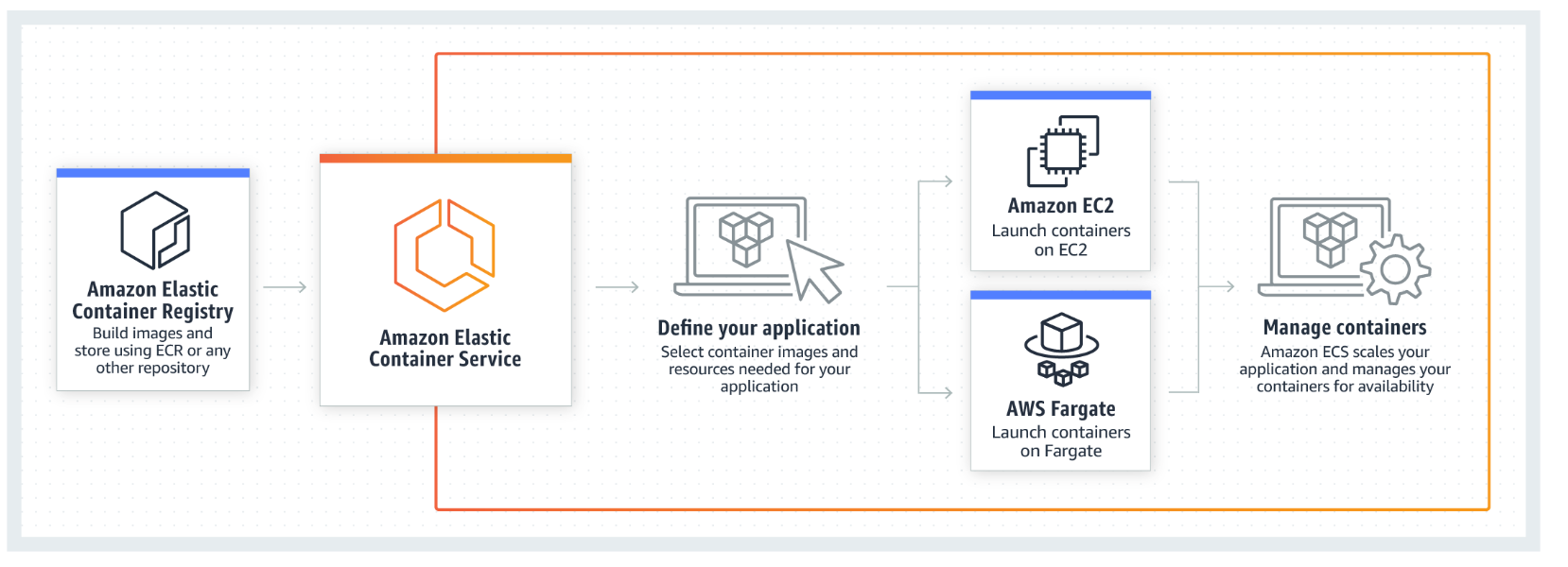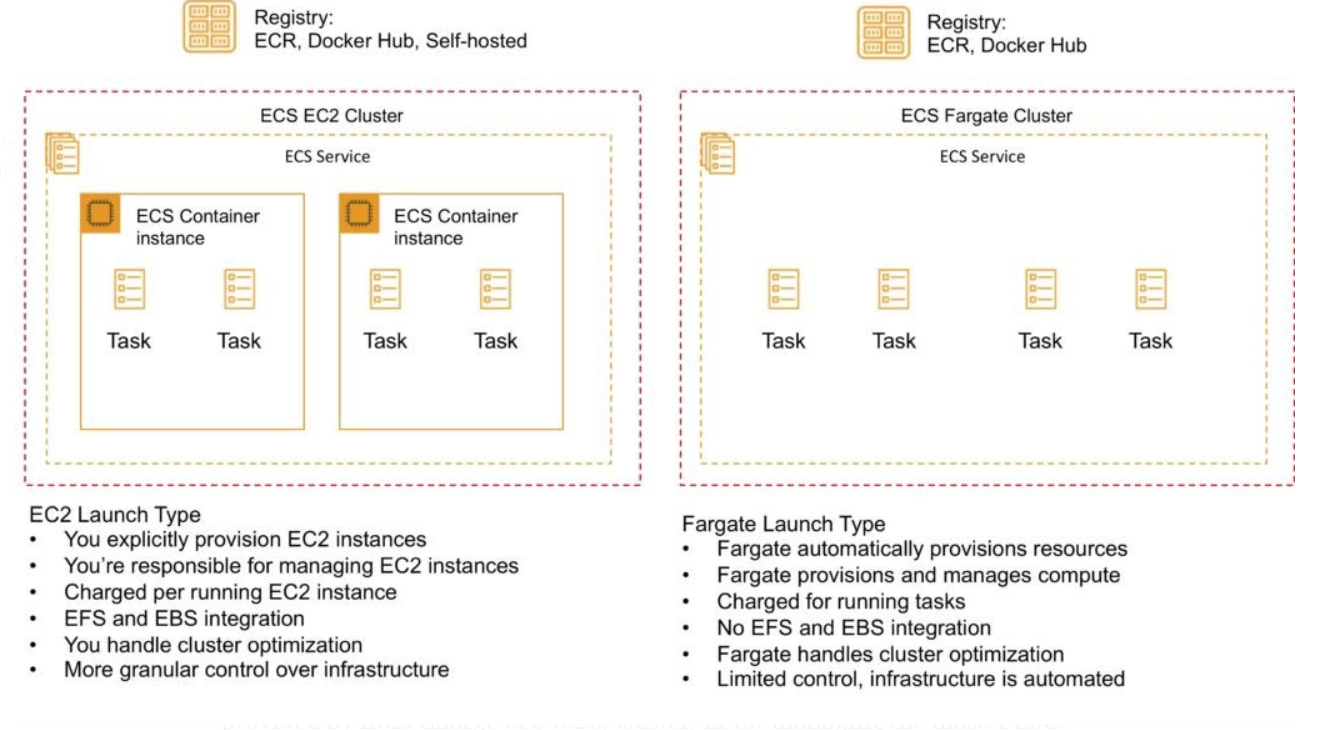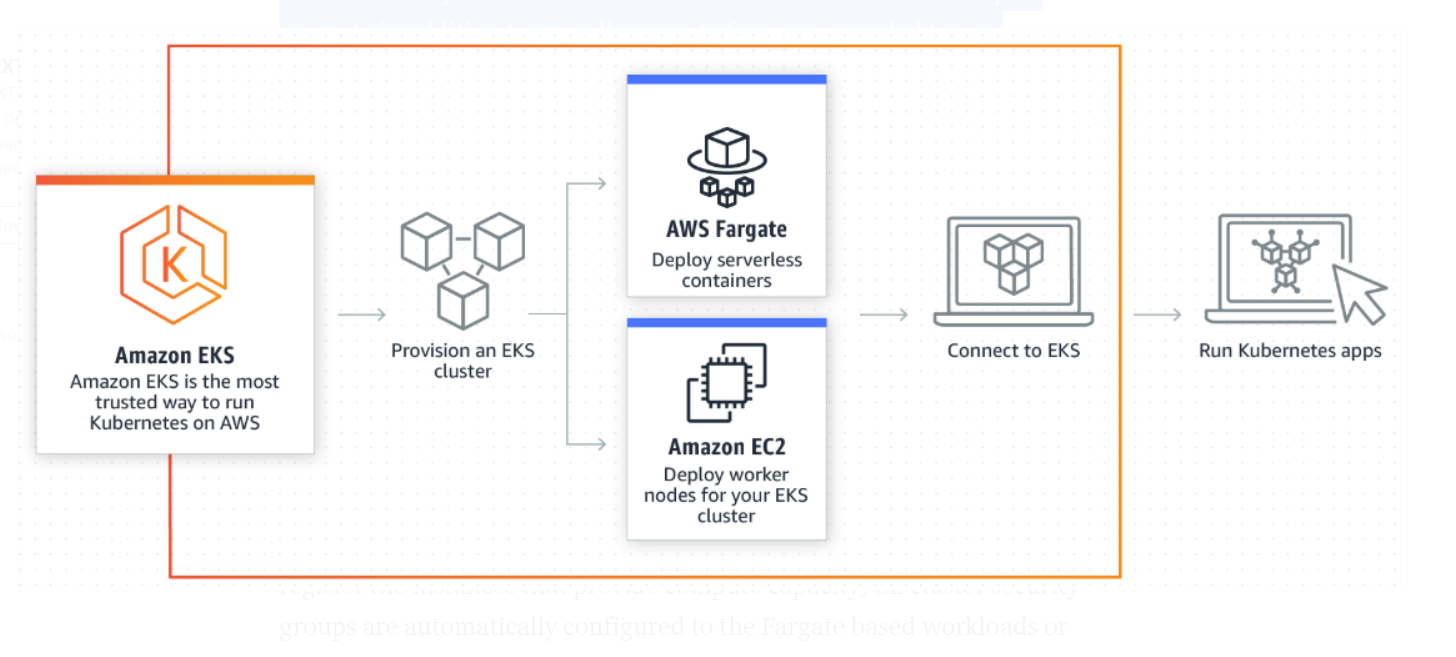May 5, 2020 / Nirav Shah
One of the fundamental advantages of cloud computing is the major reduction in the complexity of managing server hardware. With the rise of application containerization, AWS has come up with a multitude of container-specific platforms.so now let’s understand these services one by one.
ECS
Amazon Elastic Container Service (Amazon ECS) is a fully managed container orchestration service. ECS is Amazon’s “Docker” as a service. It allows you to take advantage of several enhancements in managing the underlying infrastructure so that you can focus on building your service.
How Amazon ECS works

ECS takes the pain of managing infrastructure away from you. ECS offers support in its CLI for Docker Compose (the ability to launch multiple containers in a batch) and it integrates seamlessly to Amazon Elastic Container Registry (ECR) for you to manage your custom Docker Images, removing the need to manage your own registry or subscribe to a paid registry on Docker.
The service itself can be used for free, but you have to pay for underlying resources provisioned to support applications.
ECS container instance is nothing more than an EC2 instance that runs the ECS Container Agent. The EC2 instance is owned and managed by the user. The instance appears in the list of EC2 instances like any other EC2 instance. On the other hand AWS Fargate manages the task execution. No EC2 instances to manage anymore. Each task that runs in Fargate comes with a dedicated Elastic Network Interface (ENI) with a private IP address. All containers of the same task can communicate with each other via localhost.

AWS Fargate
AWS Fargate technology is available with Amazon ECS. With AWS Fargate, you no longer have to select Amazon EC2 instance types, provision and scale clusters, or patch and update each server. Fargate manages the availability of containers for you. You just define your application’s requirements, select Fargate as your launch type in the console or CLI, and Fargate takes care of all the scaling and infrastructure management required to run your containers.

With AWS Fargate, users only pay for the amount of vCPU and memory resources that pod needs to run. This includes the resources the pod requests in addition to a small amount of memory needed to run Kubernetes components alongside the pod
The pricing is dependent on region
To know more about visit below link
https://aws.amazon.com/fargate/pricing/
Amazon EKS
Amazon EKS is a managed service that makes it easy for users to run Kubernetes on AWS without needing to stand up or maintain your own Kubernetes control plane. Amazon EKS is a managed service that handles tasks such as provisioning, upgrades, and patching.
Let us take a look at the benefits of Amazon EKS:
How does Amazon EKS work

Each cluster costs just $0.20 per hour. The major advantage over ECS is that a single Amazon EKS cluster is sufficient to run multiple applications.
Summary
In simple words,
“AWS ECS is for you if you like using Docker!”
“AWS EKS is for you if you love Kubernetes!”
“AWS Fargate is for you if you do not want the grunt work of managing either Docker or Kubernetes!”

As a Director of Eternal Web Private Ltd an AWS consulting partner company, Nirav is responsible for its operations. AWS, cloud-computing and digital transformation are some of his favorite topics to talk about. His key focus is to help enterprises adopt technology, to solve their business problem with the right cloud solutions.
Have queries about your project idea or concept? Please drop in your project details to discuss with our AWS Global Cloud Infrastructure service specialists and consultants.